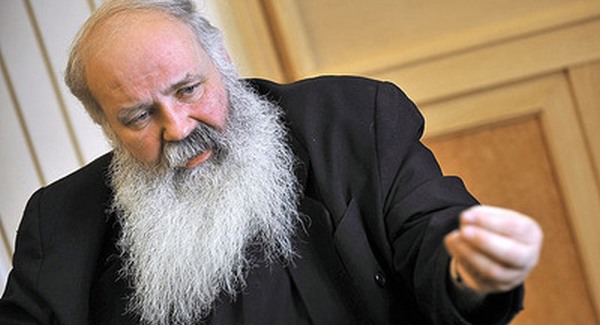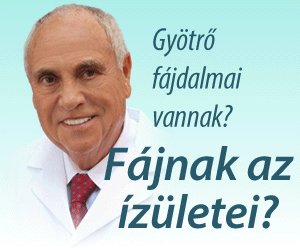Today, the Hungarian Parliament, with its two-thirds Fidesz–KDNP government majority, is preparing to pass a parliamentary resolution that will amend Act CCVI/2011 on Freedom of Conscience and Worship and on the Legal Status of the Churches, Religious Denominations and Religious Communities, with effect from March 1. Into the schedule attached to a piece of legislation unconstitutional in several of its terms goes a list of 18 further churches to be “favoured” by the legislature with official recognition. Meanwhile the multitude of Jewish, Christian and non-Christian churches and religious bodies excluded by the discriminatory law will be shorn of rights obtained long ago, without any substantive reason being given for withdrawing their official recognition.
The parliamentary resolution names almost twenty other churches that meet the requirements of the law now in force, but will lose their church status and be barred for a year from applying to have it restored. The Hungarian Evangelical Fellowship (MET) is on that list of the unjustly deprived.
Tamás Lukács MP , Christian Democrat (Fidesz–KDNP) chairman of the competent parliamentary committee, excuses this discrimination publicly in the press, by saying the measure seeks to bolster the churches that represent in this country one or other of the worldwide churches that have operated abroad for at least a hundred years. Let us establish one thing right away: the law flouts the principles of freedom of worship and church organization by denying to denominations the right of official operation on the grounds that they do not belong to an old-established worldwide church. But the legislators have applied even this criterion in an arbitrary way. I do not see how the condition attached by Tamás Lukács can be met, say, by the Transylvanian Congregation, founded and registered in the early 1990s as a single congregation and one branch thereof by the Reformed Church minister Géza Németh, independently of the Hungarian Reformed Church. Yet Tamás Lukács justifies trampling on the rights of the MET by claiming that my church has no hundred-year record of operation internationally and that we are usurping the name when we call it Methodist or I call myself a Methodist minister.
Tamás Lukács’s earlier proposal that we be rejected was made on the grounds that we do not claim the status of a church. Yet we have insisted on our legal status as a church in all the statements submitted in good time with all the required supplements attached. Lukács, as Christian Democrat chairman of the parliamentary committee, was so certain I would not reply to his impolitely phrased email requesting data that he continued to use his apocryphal argument in the face of the facts. I had to refute his allegations in an official statement. He has now come up with new misrepresentations to disguise that his efforts reflect religious and political prejudice against me and my congregation.
Tamás Lukács asserts that “the MET, which claims to belong to the Methodist Church, does not meet a specific criterion of this procedure – of being an authentic representative in this country of a great world religion.” His assertion falls down in three respects. First, there was no such clear “criterion” (no such criterion is mentioned in the Act and despite Lukács’s claim to the contrary there has been no Constitutional Court ruling on it). Secondly, there is no such thing as “the” Methodist Church. While making a scarcely interpretable statement on the Hír TV news channel, he waved a purported “certification from the World Methodist Council” that “the Methodist church in Hungary is the Methodist Church.” I can hardly believe that the World Methodist Council would issue such a confused certification. It is more likely that the “evidence” Tamás Lukács held tightly in his fingers was a document prepared at the request of State Secretary László Szászfalvi by István Csernák, Methodist superintendent, a former minister of the Reformed Church, and likewise a Christian Democrat, which was described in a KDNP press statement on 16 February as “a letter submitted to the committee by the Methodist Church of Hungary and the worldwide United Methodist Church (UMC).” It is another matter (and my soul is too heavy at present to deal with the matter substantively) to say how the state secretary for church affairs set about persuading the hapless Hungarian superintendent to issue this statement, or what induced the UMC (if it ever did) to make this contribution to the church-persecution policy of the Hungarian legislature and government. Was it designed to ensure that the Methodist Church of Hungary should join the list of denominations supplementary to the 14 originally favoured particularly by the Fidesz–KDNP? What short-sightedness! Thirdly, the MET declares itself to be Methodist but has never claimed that it “belongs to the Methodist Church.”
Let me explain why I say that Tamás Lukács is again at odds with the truth. As far as I am concerned, I can call myself a Methodist because I (like several ministers and innumerable members of my church) underwent the sacrament of baptism by the Methodist Church of Hungary. This indisputable fact has to appear in the local Methodist register concerned. Furthermore I can call myself a Methodist because I was ordained by the same church and served it is an assistant minister, until the secretary for church affairs of the government of the then ruling Hungarian party, in the mid-1970s, instigated and collaborated in church and then state show trials that deprived me and several fellow ministers of the posts and gave us suspended sentences of imprisonment. By the joint will of the then state and church we were obliged to found the MET in order to legalize the position of our congregations, and after struggles of almost nine years, we did indeed gain legal recognition from the Hungarian state. A split similar to ours occurred, for instance, in the last century in the Eastern part of Germany. There too there remained an Evangelical Fellowship that called itself Methodist and followed consistently Methodist beliefs and church organization. The German Methodists, however, were more restrained and may have wounded each other less severely than we, so that they reunited after some years as the Evangelical Methodist Church.
But to return to this country: the MET, during the earlier persecution in the 1970s and ever since, has had continual contacts with various sections of “the Methodist Church”, principally the Free Methodist Church in North America, likewise a worldwide church, which separated in the 1850s. Like us it is Methodist, but not a member of the United Methodist Church. A delegation of this worldwide Methodist church (consisting of two bishops and several ministers prominent in its work) visited Hungary after the change of system, to formalize our working relations in a written agreement that remains in force to this day. Under a rider to the agreement, the John Wesley Theological College in Budapest (of which the Free Methodist Professor Dr. Bruce Kline of the United States is perpetual honorary president, having been active earlier in its Senate) is an affiliate of the Association of Free Methodist Educational Institutions (AFMEI). As I myself was a member of the first freely elected Hungarian Parliament after the change of system, the delegation was, at my request, invited by the then chairman of the parliamentary Committee on Human Rights, Minority and Religious Affairs (incidentally chosen from Fidesz). Bishop Dr. Gerald Bates gave an address to the committee presenting his church, and at their request regularly sent them thereafter its journal, Light and Life. The name of the chairman of the Committee on Human Rights, Minority and Religious Affairs at that time was Dr. Tamás Lukács.
I wait with interest to see what further excuse Tamás Lukács will think up to obstruct the operation of the MET as a legally registered church. I will also be interested to know when this militant Roman Catholic politician sees fit to adjust his ethical line of argument to the Ninth Commandment (“You shall not give false testimony against your neighbour”), or when he wakes up to the fact that the age of religious wars fought with administrative constraints and the force of the state is over, and that it is not fitting in the 20th century to pursue the “re-evangelization” of Europe by the unworthy means that he and his alliance of parties employ.
Tamás Lukács was the instigator of a committee consisting of two Catholics and one Reformed churchman (a retired deputy bishop), all Christian Democrats, that prepared the first version of Act C/2011. This version, having been discussed and agreed in the committee, was then radically rewritten without its approval by János Lázár, leader of the Fidesz faction in Parliament, in the evening hours before the final parliamentary vote on the legislation. The rewritten version was then presented for the vote. Tamás Lukács at that juncture did not proclaim or fight like a lion for his concept (among others for us, for the supplement to the draft prepared with his cooperation included the MET in its list). He did not threaten to resign his seat in protest or resign from the Fidesz–KDNP. He voted like a lamb for the new version, though it was presented to him at the last moment. This law was annulled by the Constitutional Court on procedural grounds. The two-thirds government majority in Parliament (including Tamás Lukács) then voted it through a second time unchanged. It is my conviction that this arbitrary law, born in falsehood and implemented unjustly, has to be annulled again by the Constitutional Court.
But what happens in the meantime to about 3000 children and young people, severely disadvantaged, who are taught, fed and clothed in our church-maintained schools? What prospects are there for the homeless to which my church ministers – people harassed on a daily basis, threatened by fines of 150,000 forints or imprisonment (under a new law passed by the two-thirds majority)? What happens to the hundreds of elderly, hoping for peace as they spend their declining years in one of our homes? What becomes of the almost 800 people employed to run these institutions?
The Hungarian Parliament must repeal this law. If it fails to do so, the Constitutional Court must annul it. Only the courts of an independent judiciary have any right to register churches. It is a task for which a partial parliamentary majority has been shown to be untrustworthy, having as it does unworthy political criteria in mind. We demand that the MET and the other churches discriminated against have their rights respected. Let there be an end to the illegal persecution of churches and trampling of their lawful rights.


















Thank you for publishing this in English. The world has got to know the extent of abuse of the basic human rights by the incumbent Hungarian government. The new religious law directly violates Human Right #2 (no discrimination), Human Right #18 (freedom of thought and religion) and Human Right #30 (that these rights are to be protected and are inalienable).
Anybody and everybody needs to make these facts known and pressure to be put on the incumbent government to withdraw the abusive law.
Time to make a difference.
It is already late, but better to change now, than never.
Unfortunately most of the people in Hungary don’t know what is democracy, or what is real freedom. (Not just religious freedom but any in general ).
They don’t care the Human Right when it is about others.
Like Orwell said : “All animals are equal, but some animals are more equal than others”
-=[ And these are (the) pigs ]=-
Without digging deeper in the details of how it is going to affect some churches in Hungary, merely the fact that the Fidesz-KDNP is making another major step ahead by modifying Act CCVI/2011 on Freedom of Conscience and Worship, is making it bigger than a domestic matter.
It can have far-reaching consequences. Is this they’re hoisting the colors again or muscle flexing in hope of reshaping borders by touching another sensitive area that obviously extends beyond the Hungarian borders? I can’t even think about how it will go off, I am not the eyes of Nostradamus to tell the future, but all I can say, whatever they touch gets rusty and during their two years of unfortunate activities they have achieved nothing more than creating stir.
-
They might introduce it as an important phase of their precarious “Hungary will reborn” hogwash conception but I just can’t fathom how this step would foster the economic and social revival of Hungary, that they have promised.
Thank you Mr. Ivanyi!
Thanks to Ivanyi and also to AN editors for publishing an important text in English. So would be done more frequently. The only hope for Hungarian democracy that the world gets relevant and authentic information about what is going on in Hungary. Alas the world doesn’t speak Hungarian but rather English so the duty of Hungarian democrats (if there is any) is to tell the world in English, German, Spanish, Russian, etc. about the troubles in the country. And: to ask for help is not a shame if someone unable to solve a problem.